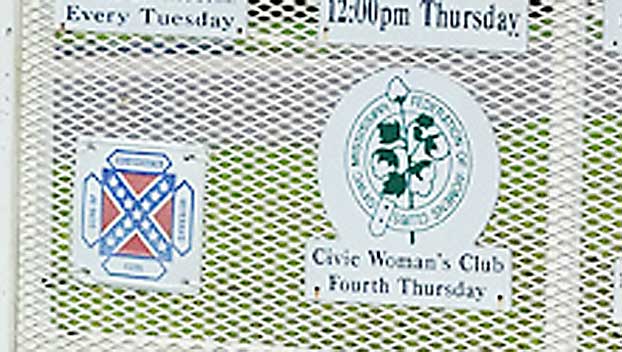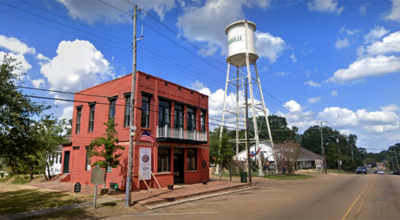Mississippi city says state law required Confederate signs be put back up
Published 4:13 pm Friday, May 14, 2021
Signs denoting a local civic club that uses the Confederate Battle flag as its logo and a sign describing the history of local Confederate Companies have been put back in their respective places in Picayune after it was discovered that state law prohibits the removal of such items unless they are placed in an even more prominent spot.
The signs were removed last week after city officials received a complaint of their presence. Two of the three signs removed advertised the Sons of the Confederate Veterans, a local civic club.
Those signs were located at the two main entrances of the city, one along Memorial Boulevard near Interstate 59, and the other on Sycamore Road/Highway 43 North near the interstate. They were displayed along with signs advertising several other civic organizations. A third sign describing the history of Confederate Companies in Pearl River County was removed from its place in front of the Intermodal and Tourist Center along Highway 11. All of those signs have been reinstalled Tuesday evening, said Representative Stacey Wilkes.
Previous coverage states the signs were taken down because the City Council could not find a place in the minutes where installation of the sign at the Intermodal and Tourist Center had been approved. Complaints led to the removal of the Sons of Confederate Veterans signs.
Wilkes said she received a call from the city manager asking about the legality of the city taking the signs down. Her research showed that according to state statute 55-15-81, “None of the following items, structures or areas may be relocated, removed, disturbed, altered, renamed or rededicated: Any Revolutionary War, War of 1812, Mexican-American War, War Between the States, Spanish-American War, World War I, World War II, Korean War, Vietnam War, Persian Gulf War, War in Iraq or Native American War’s statues, monuments, memorials or nameplates (plaques), which have been erected on public property of the state or any of its political subdivisions, such as local, municipal or county owned public areas, and any statues, monuments, memorials, nameplates (plaques), schools, streets, bridges, buildings, parks preserves, reserves or other public items, structure or areas of the state or any of its political subdivisions, such as, local, municipal or county owned public areas, which have been dedicated in memory of, or named for, any historical military figure, historical military event, military organization or military unit.”
It goes on to state, “The governing body may move the memorial to a more suitable location if it is determined that the location is more appropriate to displaying the monument.”
Wilkes said that the fact that the Council can not denote a place in its minutes where the sign at the Intermodal Transportation Center was approved is moot, because the sign had been installed. She added that the sign covering the history of Confederate Companies is in an ideal place since the Intermodal and Tourist Center houses a museum.
“They did the right thing by inquiring about it and wanting to do the right thing,” Wilkes said about the city’s administration calling her for clarification.
Russell Foster, a member of the Sons of Confederate Veterans, said that he and the rest of the club’s members appreciate everyone in the community for their support in getting the signs reinstalled. Foster has been a member of the club for at 20 years and described it as a historical organization that donates to charity and is involved in the community.






